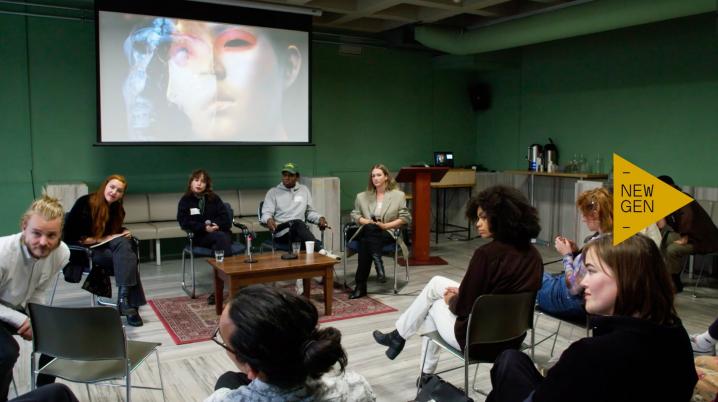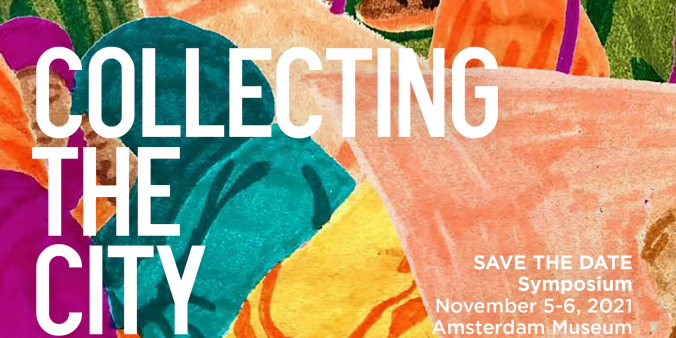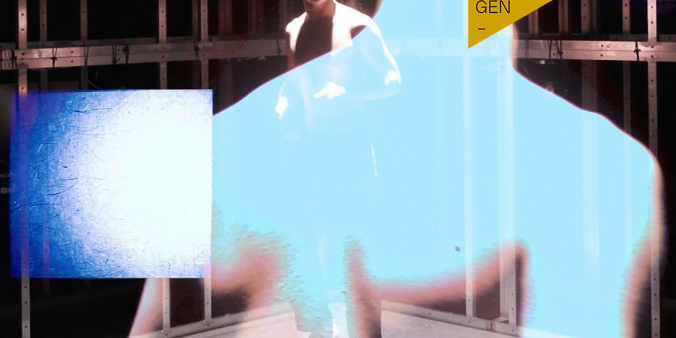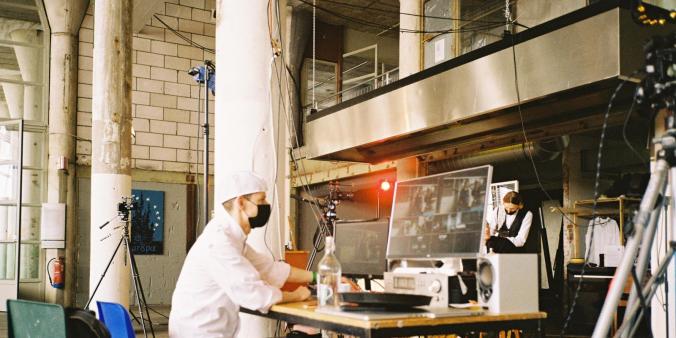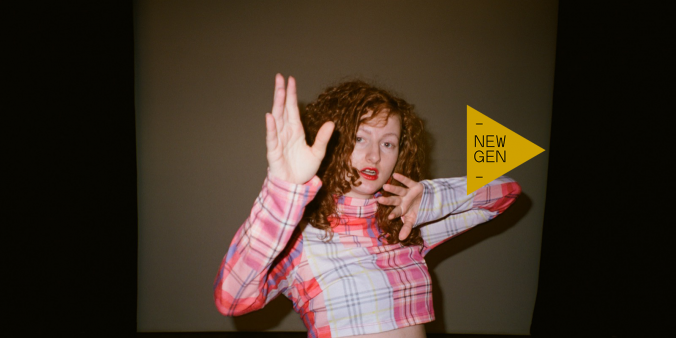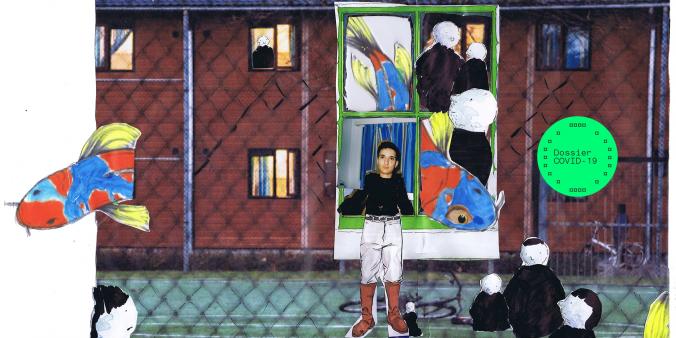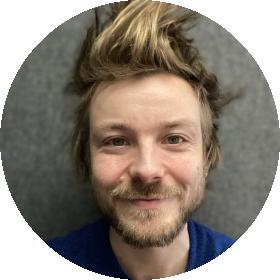
On 1 October DutchCulture organised its first public New Generations meet-up. A diverse group of 18 young artists based in the Netherlands came to share their experiences working abroad so far, as well as their international ambitions for the future. Who are they and how far do their dreams reach? How do they start new collaborations and cross borders? What struggles and challenges are they facing? But also, what can we learn from them?
A lab full of creative individuals
Among the participants were some familiar faces; we welcomed documentary photographer and visual artist Zindzi Zwietering who joined us during a previous conversation and Mart Veldhuis, who designed the visual look of New Generations. Arriving at the venue for this meet-up, cinema LAB111 – wonderfully situated in the monumental building of the former pathological anatomic laboratory in Amsterdam-West – many of the participants had a slightly hard time to condense the nature of their work to a single discipline or description on their name badges. Many of the artists do not associate their work with only one discipline or form of art, but combine different methods, media or approaches.
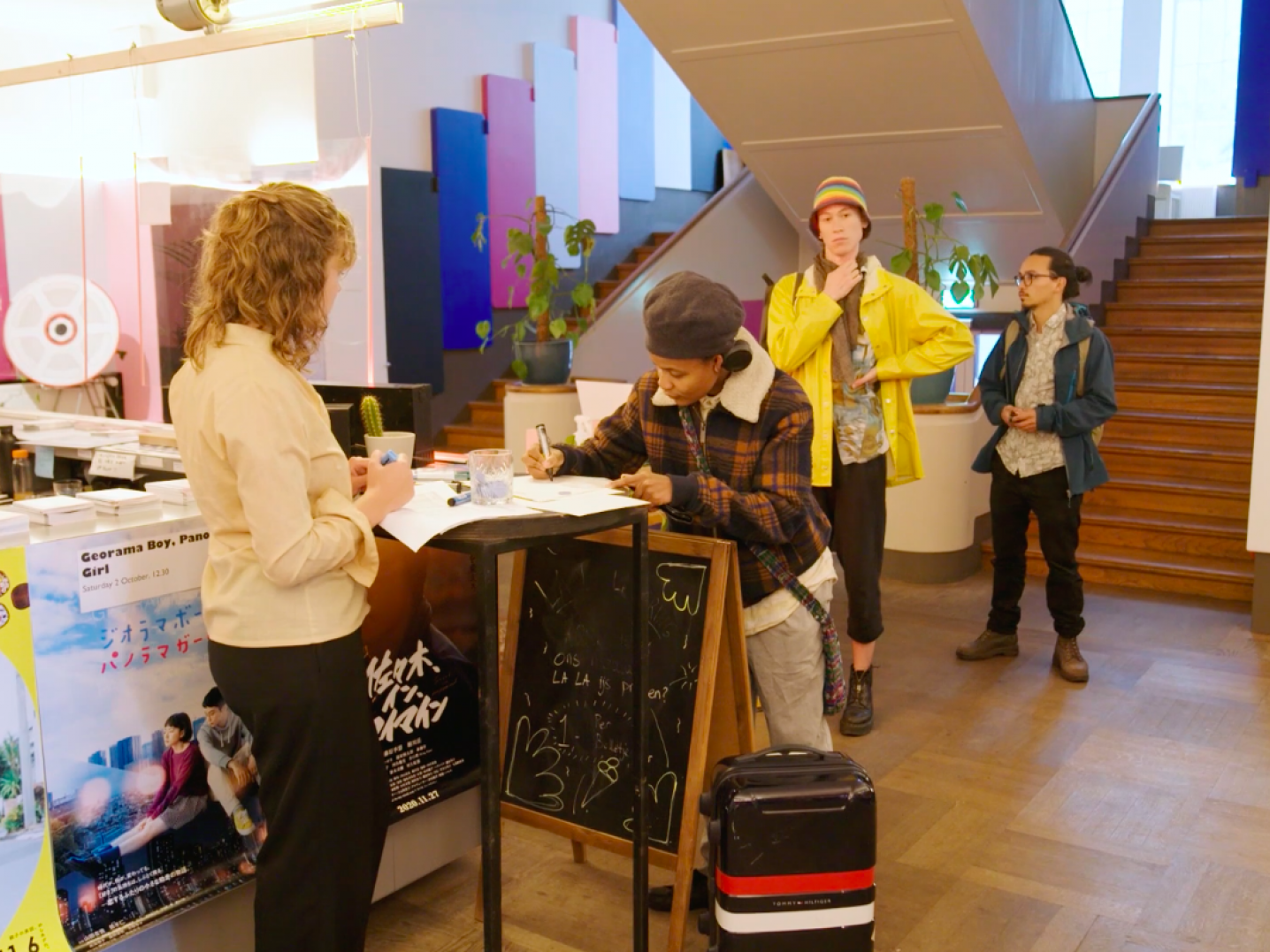
The meet-up kicked off with a panel discussion spotlighting three talented artists who might be exemplary for the broad range of the new generation of creative makers. Moderator Lies Mensink, who is also a freelance writer, interviewer and programme maker at Veem House of Performance, interviewed visual artist Esmay Wagemans, pianist, DJ and producer Loradeniz and slam poet and film maker Lemuël de Graav. Afterwards, the guest speakers and other attending artists were split up into three smaller break-out sessions, to get to know each other better and talk about their personal experiences of working internationally.
Out of your comfort zone
Though most of the participants are born and raised in the Netherlands, for some of them working in the Netherlands has actually been their first step abroad. Istanbul-born singer and composer Loradeniz reflects on her six years in the Netherlands: "I first moved here because I wanted to define myself outside my comfort zone and my music to become more global. The first three years were though, I often felt like giving up. It takes time to get into the scene and into new ‘bubbles’ of friendships and partnerships. My music takes new shape or essence each time I move to another city."
Singer Joya Mooi partly acknowledges this statement. The Amsterdam-based artist has worked in South Africa, where she noticed how the audience reacted slightly differently to her music than people in the Netherlands. Besides performing in South Africa and the United States, she has collaborated both in South Africa and the United Kingdom. "It is almost impossible to reach your international goal on your own, you’ll need other people and organisations. Sometimes you have to overcome some obstacles for yourself before you take the next step and start contacting formal institutions or applying for funding schemes," says Mooi.
Instagram sells
A great example of how New Generations artists have discovered new ways of finding collaborations is the success story of visual artist Esmay Wagemans, whose transparent wearable sculptures have already featured in music videos of pop icons Cardi B and Solange. As a student at the Willem de Kooning Academy in Rotterdam, she was often told by her teachers to take an effort in putting themselves out there, but she took on a different approach. "I post pictures of everything I create on Instagram, I try not to be critical of my own work. Stylists of big music stars and other artists are always searching online for new items and might contact you via direct messages on Instagram," says Wagemans. "I actually think you might be ‘losing points’ if you start emailing magazines or artists you look up to and would like to collaborate with. Let them find you through your work and wait till something happens."
But Wagemans does realise how much she depends on commissions and requests. "Once someone orders a product, I just have to wait and see if my work will actually appear in the music videos. I only contribute to other people’s stories, instead of telling stories of my own," she admits. After a period in which her career exploded, Wagemans feels the need to create work more autonomously again, but she hasn’t figured out how she would be financially able to. "I’m now trying to start my own projects, but it’s hard to find the time and money since I have to pay for materials and my studio," she explains.
Stick to your story
Poet and screenwriter Lemuël de Graav has already fully embraced this mentality, because for him it’s most important to stay close to himself: "The only story you can tell is the story you know." After winning the IFLU International Story Contest, De Graav had the honour of representing the Netherlands at the World Championship Slam Poetry that was supposed to take place in Paris but was held online due to COVID-19 measures. Thus, De Graav was not able to meet other international slam poets, although he is very interested in different cultures and the appreciation of arts and culture in other countries.
De Graav: "Screenwriting is more suitable for international ambitions, because I think poetry loses its essence in translation." De Graav is studying at the Film Academy in Amsterdam, but already works on the script of a feature film about two Surinamese brothers in New York City. "Not many people know about the history of migration from Suriname to the United States and I would love to share this story with an international audience. I enjoy doing research into this subject, because it relates to my own heritage."
The urge to speak out
Last Spring, when Loradeniz was applying to an artist in residency programme, she was asked to record a live show. During that same week she learned about the murder of the Turkish woman Pınar Gültekin, which sparked a larger discussion on violence towards women in Turkey and across the world. She was so shocked by the news that it resulted in the home recording of the song Femicide. "The awful news just couldn’t get out of my head so I felt like I kind of had to write a song about it," she says.
Like Loradeniz, many young artists feel the urgency to speak out against social injustice or other societal issues through their art but also via social media accounts. Some artists feel the responsibility to speak out not only for themselves but to represent a specific community. Dancer and choreographer Charlice Johannes pointed out: "I do feel the responsibility to use my creativity to raise awareness. I see it as my duty as an artist to educate myself and others on topics such as racism."
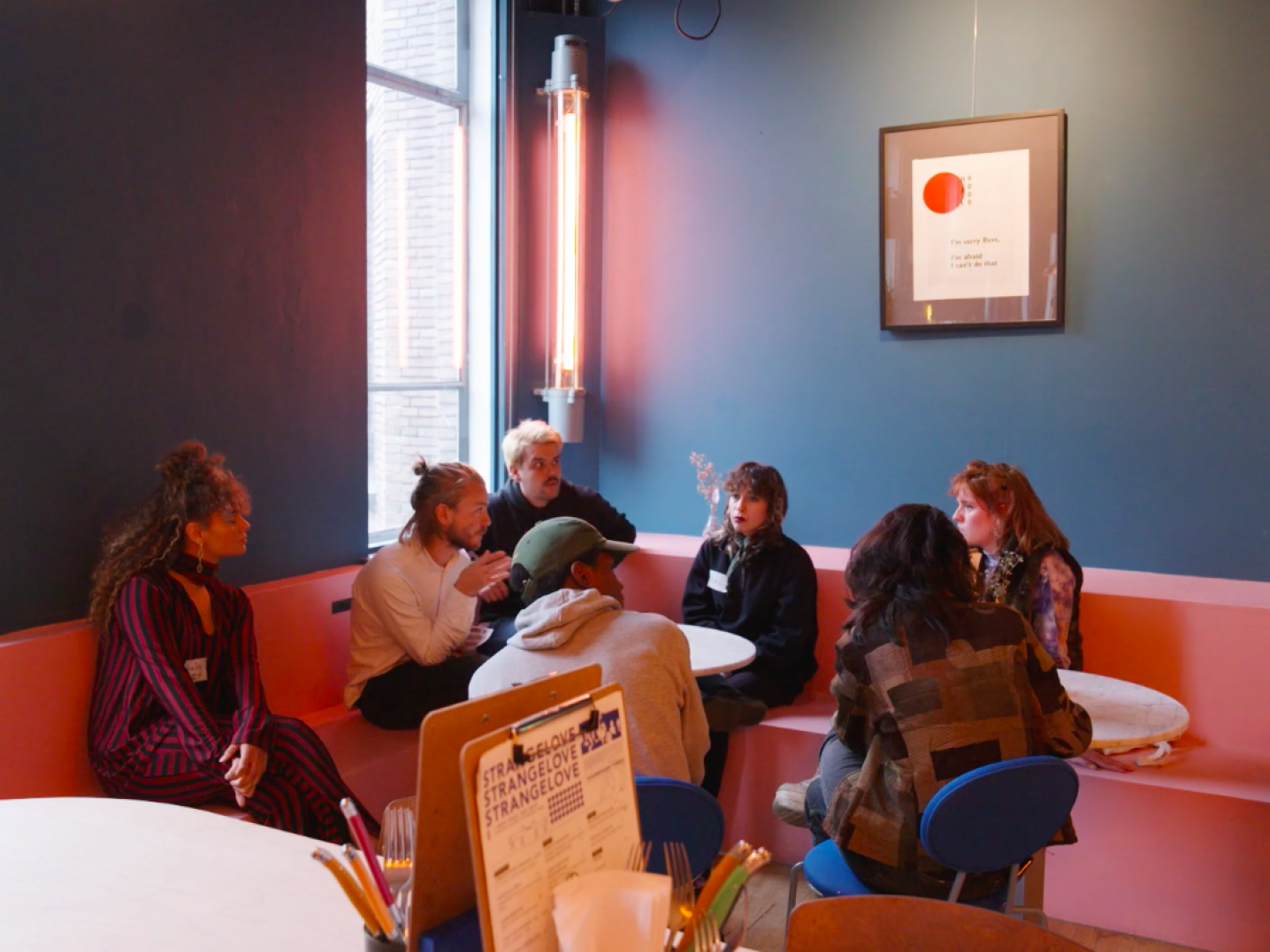
De Graav agrees on this statement: "I feel responsible too to speak out about racism and discrimination. But it’s important to keep identifying yourself as an individual, rather than being defined by a community. I think if you tell a personal story really well, it can gain a universal value for an international audience to understand too."
Finding contacts and funding
During the break-out sessions, we discussed the challenges of networking across borders and financing international projects. The participating artists reflected on very different experiences. Musician and composer Cedric Vermue is keen to be introduced to an international audience but has trouble realising his plans. "I enjoy travelling, have lived abroad before and I definitely have international ambitions. But I realise, even though I have a big network within the Netherlands, it’s hard to go across the borders without the right contacts."
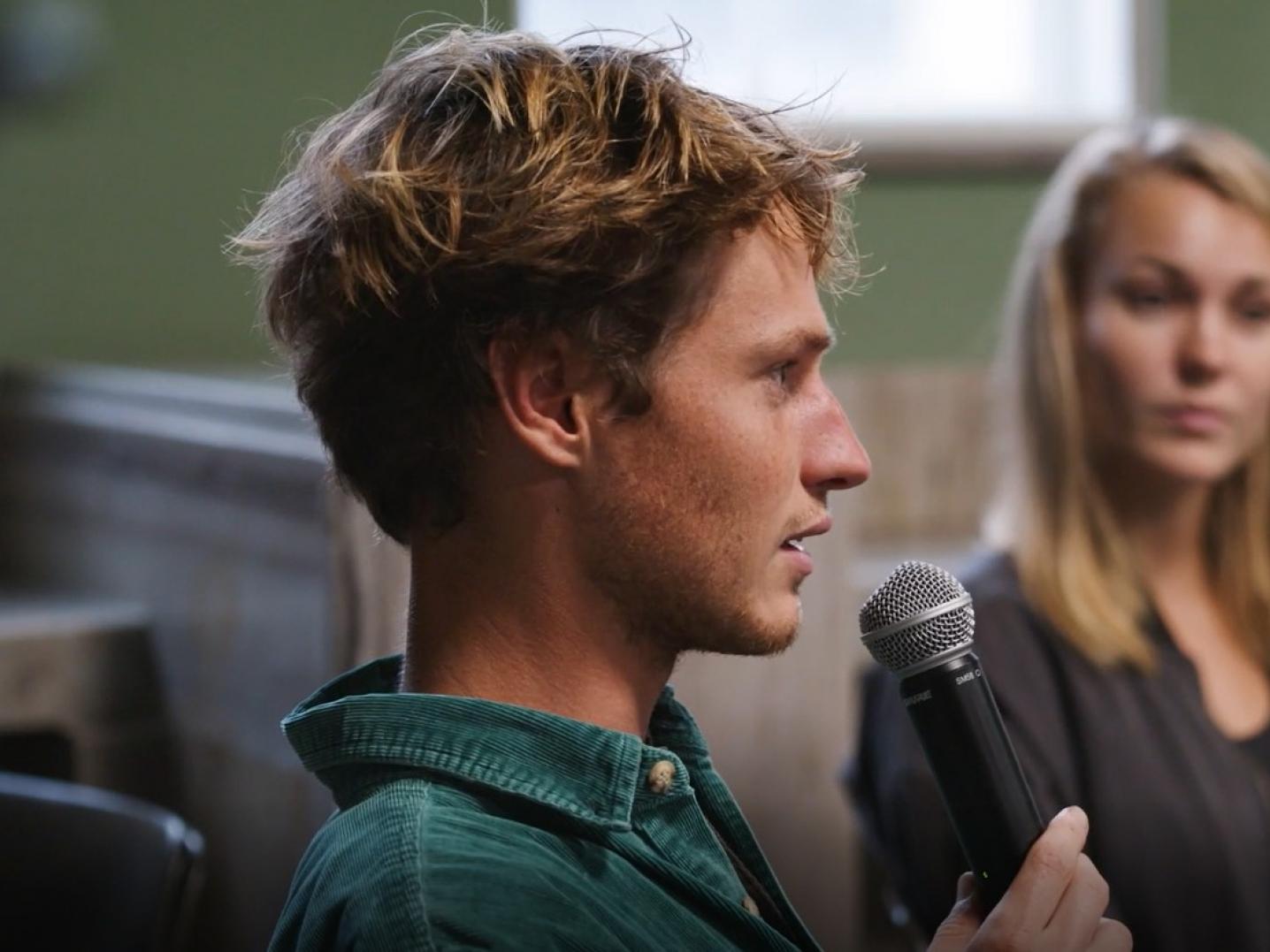
Not everyone shared this experience. "For me, finding people to collaborate with is not the problem at all," says filmmaker and screenwriter Sven Peetoom, who studied abroad at the European Film College in Denmark. "Film is all about working together. Recently, I shot a film on Iceland with a friend of mine who has great connections out there. It was successful but we put much of our own money and time into it."
Peetoom is currently working on a script for a feature film that takes place in the Spanish Pyrenees. Though he has already scouted shooting locations in the mountains, there are no funds for the production period yet. Peetoom: "It took me a few years to find out how funding in the Netherlands works, but it will probably be even more complex when you’ll be shooting a film in another country or work with an international crew. It would be really nice to get some help in discovering the possibilities of funding for international projects."
London calling
Later on during the break-out, Sven Peetoom eagerly listened to how Joya Mooi started to become more aware of funding schemes and other international opportunities. In 2020, her music had already gained some traction with a UK fanbase, when she applied successfully for an open call by the Dutch embassy in the UK. The open call was geared towards for Netherlands-based artists to reach British audiences in times of COVID-19. With this funding, it was possible to record the vibrant music video for her single Good Girl in London together with British producer company 33BOUND.
Building a new community
At the end of the day, the outcomes of the break-out sessions were shared with the group as a whole. Many participants and guest speakers emphasised the value of coming together in a safe and inspirational environment to exchange their experiences and ideas but also their struggles and doubts about working internationally. Sparked by the urgency to become more visible and approachable to a talented cohort of creatives, DutchCulture will be (co-)organising more events and programmes in the near future and continue to highlight stories from young artists.
On 14 October several artists came to DutchCulture’s office in Amsterdam, to explore possibilities for cooperation with Turkey, with David Naves, cultural attaché in Istanbul, Ipek Sür van Dijk, Senior Policy Officer at the consulate in Istanbul and Dilara Jaring-Kanik, Manager of Exchanges from the Prince Claus Fund. Together with a group from the new digital platform ArtsMap, they met in different speed dating rounds.
On Monday 25 October, during the annual Embassy Culture Days, Joya Mooi and Joosje Duk will speak to share their stories with cultural officers from several countries within the ICP-network.
On 5 & 6 November, DutchCulture and Amsterdam Museum organize the symposium Collecting the City. The perspectives of young artists and museum professionals have a distinct mark on the stories we tell about the cities we live in. During the symposium several international changemakers will connect with Dutch city-makers and museums alike, and to reflect on new collection practices from their local context.
